THE INTERSECTION OF IDENTITIES | THE INSPIRING SUCCESS STORIES OF BRITISH PAKISTANI EXPATS IN LONDON
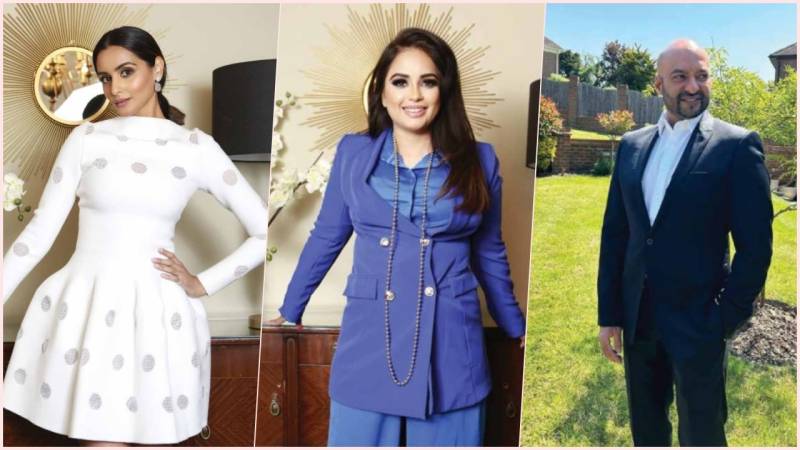
London is a city full of diverse and interesting people, and we had the pleasure of interviewing three of them. Joining us this month are three exceptional British-Pakistani expats who have made a name for themselves in London. They have each excelled in their respective fields, bringing a diverse and innovative perspective to their work. We are thrilled to hear their stories, insights, and experiences navigating their dual identities as BritishPakistanis in the UK’s dynamic capital.
First, we have a trailblazing woman Farzana Baduel, the CEO and co-founder of a successful PR company that’s been making waves in the industry for years, leading a top agency in London. Her unique perspective as a British-Pakistani has brought a fresh and dynamic approach to the industry, and we are excited to delve into her journey and insights.
Then we have a BBC journalist with an experience of over a decade in the industry. She’s covered everything from breaking news stories to in-depth interviews – she’s recently worked on some of the biggest and most distressing news stories such as the war in Ukraine, Taliban takeover of Afghanistan, Pakistan floods and more recently the Turkey earthquake. Finally, we have Faisal Ali, a family business owner of a restaurant chain that’s been serving up delicious food for over 55 years. With branches in London and Dubai, Faisal is responsible for ensuring that the restaurant maintains its high standards and continues to provide exceptional dining experiences to its customers. He has major plans coming up for Pakistan as well. Read on…
FARZANA BADUEL
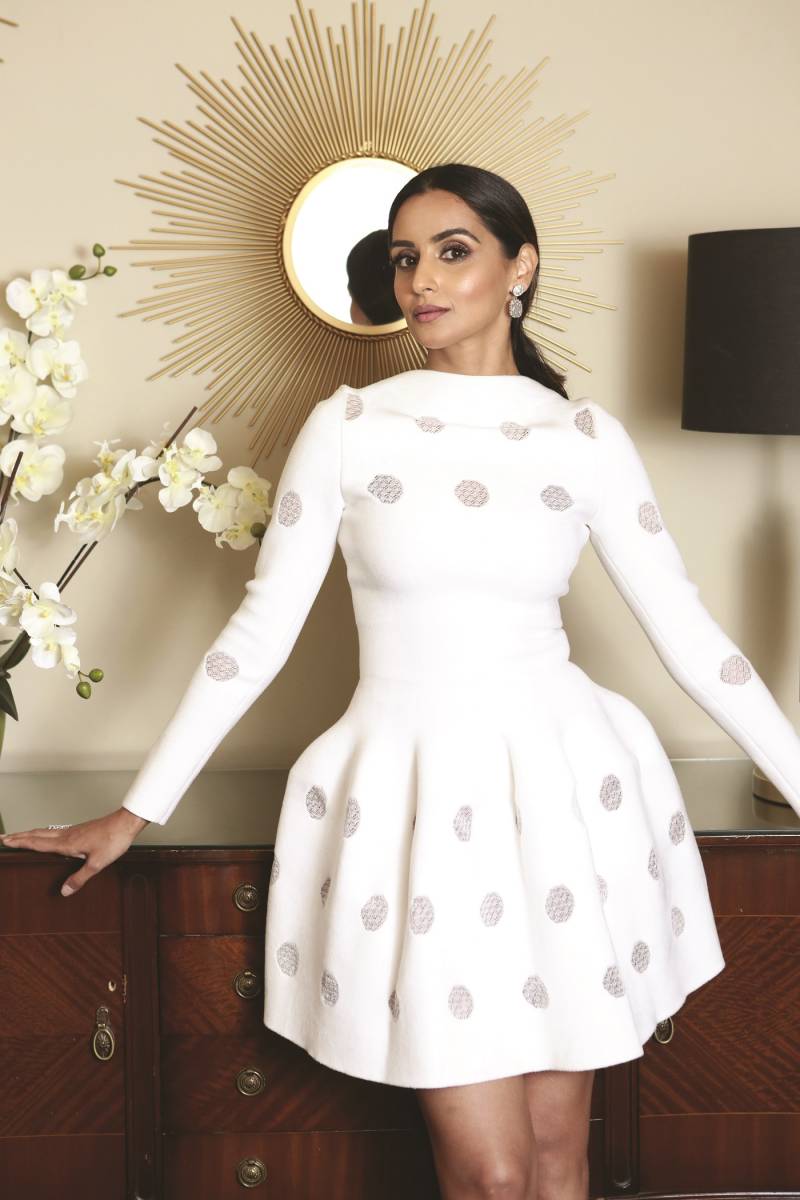
Farzana, we’re so honoured to have you. Before we delve into the story behind the founding of Curzon, please enlighten us on your career history so far. It’s certainly been an impressive one!
I left university without finishing my degree in Economics and Maths, much to the chagrin of my family, to set up a tax refund business when I was 20-years-old. It was exhilarating to set up a business and for it to flourish. After 10 years at the helm, I joined the Conservative Party as their Vice Chairman for their Business Relations Forum. It was an impactful and positive experience for me as it opened my world, and I met people from all walks of life across business, media and politics. I stumbled upon PR during this role and co-founded Curzon PR in 2009 w i t h m y c o - f o u n d e r J a m e s Ollerenshaw. I am also the Resident Expert for Public Relations at Oxford University’s Said Business School and serve as a trustee for the British Asian Trust.
What are the general misconceptions around PR and their root causes? People often use the term PR synonymously with media relations. Media relations is one aspect of a much broader realm. PR is the strategic management of information between an organisation and its public. Information flows in multiple channels beyond media relations, including social media, blogs, reports, podcasts, documentaries, events, white papers, search engines and the OG - word of mouth. The root cause of the misconception is that until relatively recently, information flow was restricted and tightly controlled with traditional media. Now the landscape is fragmented, and communication has become more democratic in some senses.
‘Millennials and Gen Z are using their wallets to drive real social and environmental change, and savvy marketers understand this shift and communicate purpose with authenticity’
Curzon is a PR company dedicated to working across government, corporate, consumer and cultural issues. What is the cur rent competition and landscape like? Any plans of expanding your PR approach to other sectors?
Curzon works across corporate, cultural and charitable sectors. Our team has yet to make plans to e x p a n d beyond our core specialisms which are already quite broad. Many competitors tend to specialise in one sector; however, as we are strategy led, working across our three core areas enables us to think holistically and deliver innovative PR solutions that connect the dots.
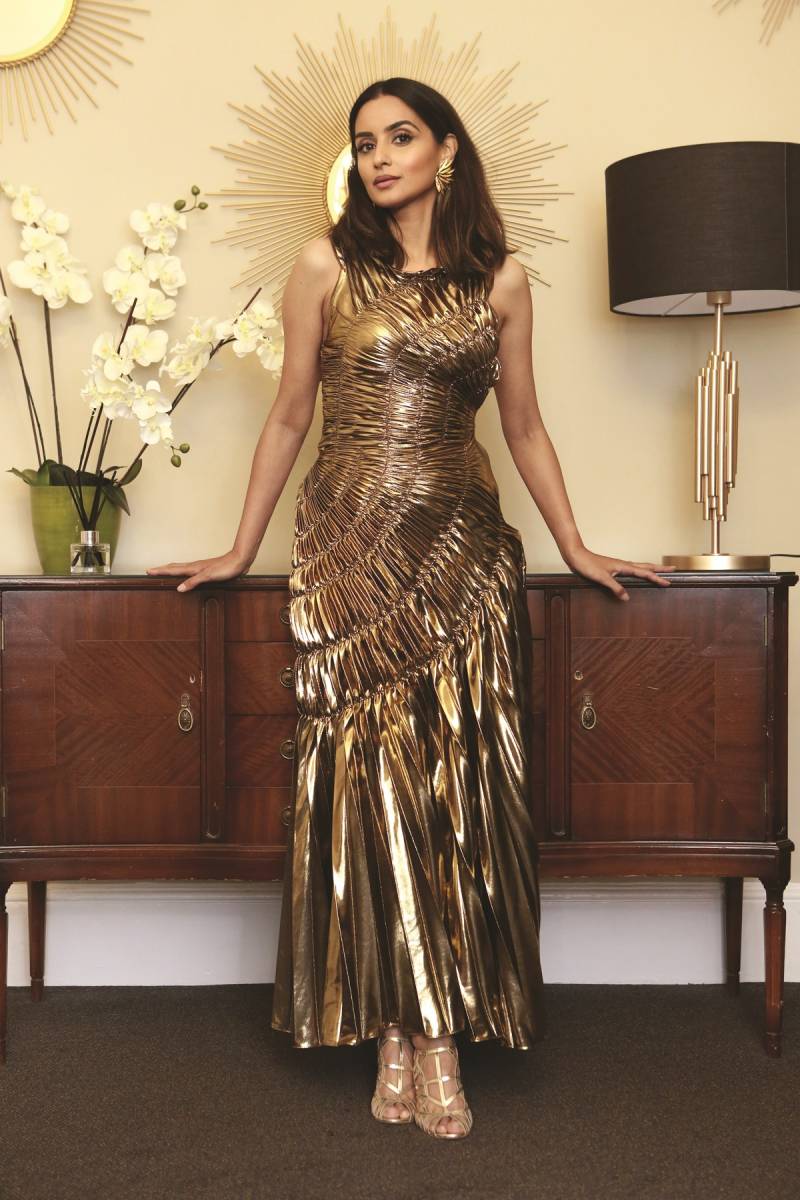
What are your favourite marketing techniques?
Marketing is traditionally based on the 4 P’s - price, place, product and promotion. However, I would argue there is a missing P - namely, purpose. The consumer has evolved in their purchase decision-making process and often considers purpose - what does the brand stand for? Do they live their expressed values and walk the talk? How do they treat their employees? Do they have ethical supply chain practices? What is their commitment to combating climate change? Millennials and Gen-Z are using their wallets to drive real social and environmental change, and savvy marketers understand this shift and communicate purpose with authenticity.
How do you utilise advertising and PR to brand a business from zero to hero internationally?
Authentic storytelling and an advertising budget can drive and build a business from zero to hero. Ultimately, you need to carefully craft the brand purpose and its brand touchpoints before you take the step of amplifying via advertising. The only way to kill a brand quickly is to spend a huge advertising budget on a lowquality brand and product, amplifying its inevitable demise. Most people want to rush into tactics and amplification without robustly undergoing the branding and storytelling strategy- it is shocking to see how much budget is wasted by advertising nonsensical brands.
It’s great to see women as changemakers and in positions of authority like yourself. As a British citizen with Pakistani heritage, what according to you is the recipe to success for a woman?
I think, as a woman in a world geared towards men, we should first be aware of the misogyny around us and not be naive. We are living in a man’s world, and whilst great strides have been made by our feminist foremothers and forefathers, there is still a long way to go. Being able to read the room is a key skill when you are from a marginalised community, be it because of your gender, ethnicity or religion. Discrimination is often insidious in some cultures; in others, it is overt. Understanding power dynamics is key to figuring out your career path if your success is contingent on people and their unconscious biases.
Women helping other women is important not only to the greater cause of feminism but also to our well-being. Lastly, as often we are juggling work and family, you’re mental and physical health is neglected- prioritising your health is the ultimate recipe for success.
Tell us a bit about your ambitions as a child and how you look at where you are in life today. If not a businesswoman, what other profession would you have chosen for yourself?
I dreamt of being a dancer, but I dared not voice my ambition as a child as it seemed a world far away from the conservative upbringing of being British-Pakistani. Instead, I looked at my parents, who were both hardworking entrepreneurs and professionals and took their path instead. I still dance when no one is watching!
You’ve been in the business for over two decades now. How do you look at young professional women today? What would be a piece of advice from you to girls opting to become independent and strong women?
I greatly admire young professional women today ; Millennials and Gen Z tend to be bold and uncompromising. I am incredibly inspired by the younger generation, as they are purpose-led and have zero tolerance for inequality. It is a kinder world for them than my generation, and my generation had it better than the one before us. So I am optimistic that we are moving into a fairer working environment.
I advise younger women that if they choose a life partner, they should choose carefully, as marriage can either make you or break you. I am lucky I married a man who is incredibly supportive of my career. Also, look at the family you are marrying into, as the extended family in our culture can also directly impact your career and well-being, which are inextricably linked.
Where do you see the advertising industry’s importance and influence going in the coming years?
The advertising industry has rapidly shifted as budgets have left traditional media, leading to the decline of journalism and headed into social media platforms and search engines. Consequently, the data informs the efficacy of advertising spend, and brands are much more likely to see the direct result between spend and sales. Advertising is still shifting as social media platforms like Twitter, which have struggled to attract the advertising revenues it needs to thrive, are now charging for advertising through the back door with boosted posts with paid verification. With AI content generation, advertisers will increasingly find it difficult to cut through all the content clutter, so they must go back to psychology to understand behavioral science and good old-fashioned storytelling techniques.
Let’s switch gears; How would you describe your personal style?
I never subscribed to seasonal fashion and trends. I like to buy classic styles to wear my clothes for decades. The impact of fast fashion on our environment is hugely damaging. My style is classic but quirky.
‘The only way to kill a brand quickly is to spend a huge advertising budget on a low-quality brand and product, amplifying its inevitable demise’
Is your approach to style an established look, or do you find yourself ever-evolving?
My style has mostly stayed the same throughout the years, as I still wear pieces that are over 20 years old. I tend to buy from French and Japanese fashion houses as they cater to a petite figure, and I am loyal to Italian brands for leather goods. My Ferragamo boots have been with me for decades as the quality lasts.
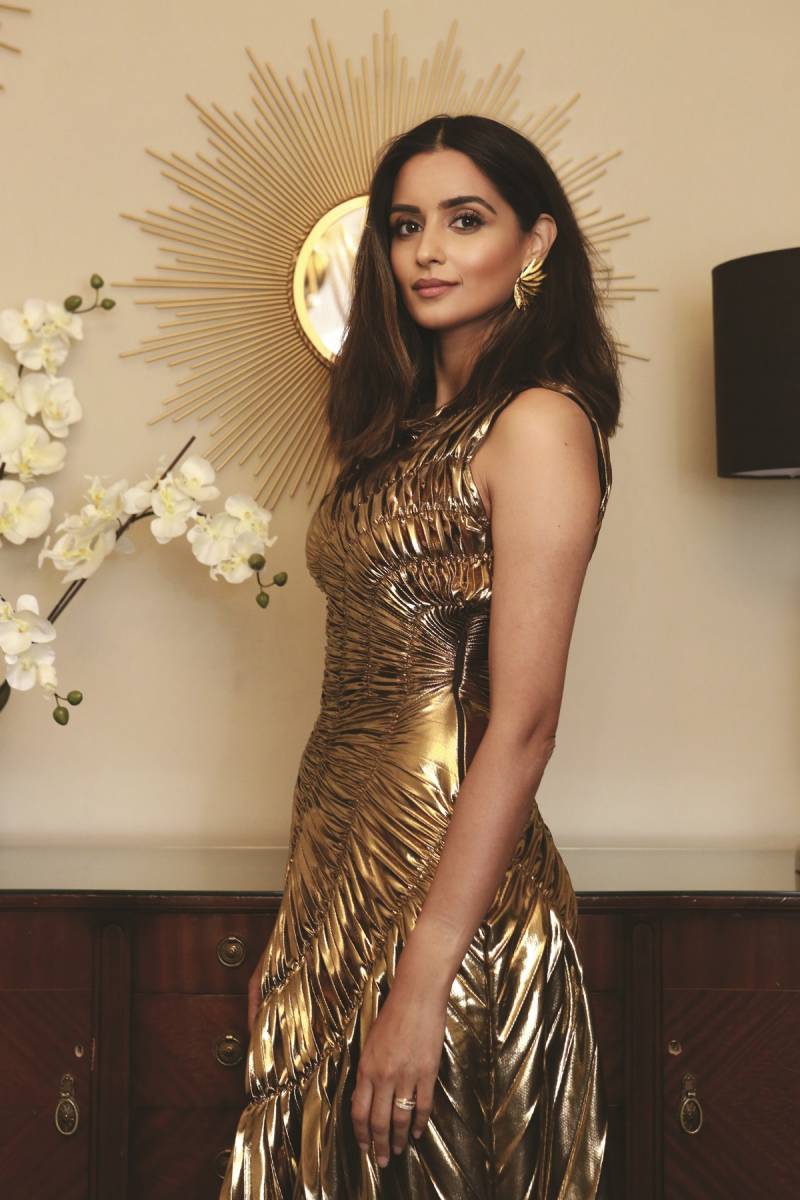
Who is one person from history whose style you can call upon for inspiration (real or fictional)?
My Italian mother-in-law, Marcella Lady Dashwood, is particularly impressive in the style stakes. Her stage name as an actress was Marla Landi, and she was also a famous model, Fashion Editor for Harpers and then a renowned society hostess. She dresses in vintage Schiaparelli couture, and her taste is impeccable across fashion, art, interiors and garden design. An impossible act to follow. Some people are just gifted with ‘the eye’.
As a high-profile woman in London who has a strong connection with Pakistan, what fashion and lifestyle elements do you love and miss?
I lived in Rawalpindi when I was 12-years-old for a year. It was quite an eye-opening experience for a British suburban kid then. I remember the resident tailor who lived and worked full-time in my grandmother’s house. It was a shock that instead of popping into our local high street for an off-the-rack scratchy polyester dress, we would go to the bazaar and visit these shop sellers with hundreds of silks, cotton, and lace. They would clamber up ladders and shower us with layers and layers of stunning materials, which we should then present to the tailor, who would turn around a suit the next morning to our bespoke measurements- the ultimate in fast fashion! The women were all so incredibly well turned out and groomed to perfection. When I visit Pakistan, after the perfunctory greetings, I am often frog-marched to the nearest salon to ‘sort myself out’ by well-meaning relatives. I am often in awe of the beauty and grooming standards of the women who live there. The women are exquisite.
What are some of your favourite spots in your city?
I was born in London, spent most of my life here, and never tired of this great city. I love going to the Chelsea Physic Garden, one of the oldest botanical gardens in Europe filled with healing plants. The Italian Gardens in Hyde Park are divine. For culture, I visit the Leighton House Museum in Holland Park to glimpse the world of a 19th C e n t u r y o r i e n t a l i s t Lord Leighton. I adore the Soanes Museum, the former home of a famous architect who stuffed his house with treasure from the grand tour across the continent to educate his students about neo-classicism.
My favourite restaurant is Maggie Jones in Kensington because they serve delicious school food classics like apple crumble and bread and butter pudding! For an Italian, I head to Elizabeth Street in Belgravia for the Olivo restaurants and tangerine sorbet at Olivogelo. I love Pakistani food, so I often head to Salloons in Knightsbridge for biryani .
What’s your favourite part of living there?
I love the diversity in London. Meeting people from around the world is my favourite thing about London. It’s like a patchwork quilt of different villages, each with its own microculture. Bermondsey for the foodies, South Ken for the culture vultures, and the green spaces throughout our city provide refuge.
EMB HASHMI
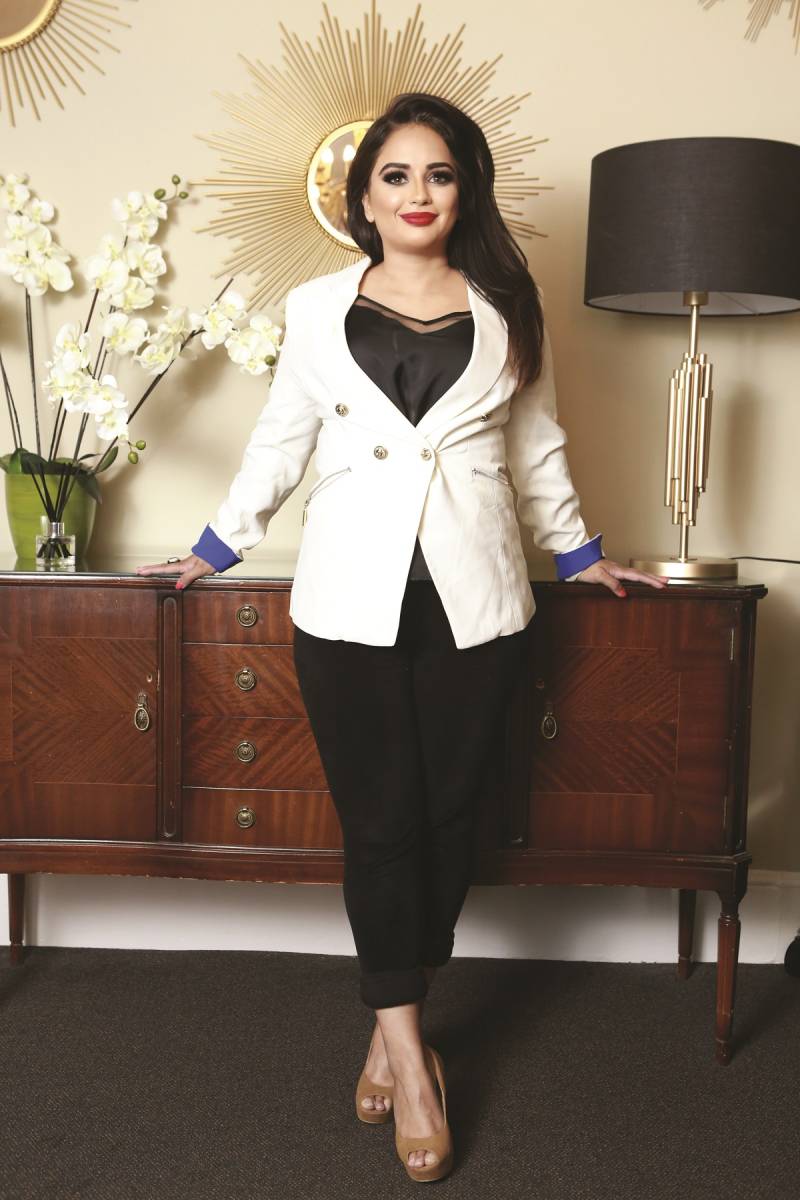
Hi Emb. Pleasure to have you. Let’s start with an ice breaker question. You have a unique name; could you please tell us what it means?
please tell us what it means? My name given to me by my family is Embreen which for a long time no one really knew the meaning of, as my elderly uncle had named me and he forgot why! Then I started looking it up in Islamic n a m e s b o o k s b u t f o u n d combinations of my name such as Ambreen and Umbren but not Embreen which led me to think that perhaps they spelt it wrong on my birth certificate and added an ‘E’ instead of the popular A. After many years I was told it meant a rare exotic flower – which is apt as I love perfumes and the intense smell of flowers such as rose, lavender and jasmine. However, my question to my parents has always been – why did you not name me after a visionary, trailblazer or fighter..? Attributes that play a part in my personality.
So coming back to Emb rather than Embreen – at school I ate a lot of M&Ms (I was quite a chocoholic back then) and so my friends nicknamed me M&M which then turned to Emb as I grew older as people not familiar with the cultural pronunciation of my name called me Ann-Maria or Anne.. so from that day on it’s always been Emb!
You’re an award winning journalist currently working for BBC. Tell us what were your early career goals? How did you end up in the journalism field?
journalism field? So I could never tell you as a child that one day I would grow up to be a journalist, growing up there was never anyone visible that looked like me and my parents always perceived it as a dangerous career as they saw war journalists on the news and others being harassed covering major incidents. They wanted their daughters to get a good office job or become a lawyer, teacher or doctor. Strangely I did start a law degree when I started university but dropped out in the first week and quickly found a more creative course to do and it just happened that there was availability on the media under graduate course. Of course I signed up and as they say the rest is history. Saying that I did write for the school paper and the local community paper and whilst I was at university I presented a food show on the local community radio station called ‘M’s Kitchen which turned into a monthly column in a northern Asian newspaper. So unintentionally my future career path had already started to be paved. Working for the BBC is the ultimate goal of any young inspiring journalist so when I got my first job at a regional BBC radio station I was overjoyed. I have been working the ‘beeb’ as we love to say.. for just over 1 0 y e a r s i n m o r e t h a n 1 0 departments from BBC Sport, the World News to Radio 4, Women’s Hour and many more – I now occasionally produce and present the World Service program Business Daily and report as well as dive deep into stories I am passionate about that reflect the diverse world we live in.
‘Women empowering women is a strong trait in my journey’
You have been in the field of journalism for over a decade now. What advice would you give to your past/younger self when you were just starting out in the journalism industry?
Break the glass ceiling. When I was entering journalism there were not that many opportunities, programs and initiatives to help people break into the industry or even mentorships – I would tell my younger self to have tried harder to find those opportunities and raise my voice earlier
Do you have any role models or mentors in the jour nalism, publishing, or business fields or in general that you look up to?
Yes there have been some incredible trailblazers who have shown me kindness, supported my journey and helped me reach my ambitions. Firstly I would like to give a big shout out to the incredible Nikki Bedi who is an amazingly talented radio and TV presenter in the UK who use to present MTV India many moons ago – her list of inspiring achievements are long but to me she is a great human being who came into my life during the Covid pandemic when we were all locked up at home and in need of positive energy. She held my hand over Zoom, gave me the best advice and guidance and most importantly made me laugh and smile which she still does with her uplifting voice memos as she travels the globe with her program ‘The Arts Hour.'
Then during my time at the BBC News Channel a wonderful kind British-Pakistani assistant editor called Sadia Khan took me under her wings, mentored and supported me helping me learn new skills and listened to me whilst I overcame my hurdles – she truly believes in me and this is a quality that is seldom found in the fast paced world we live in. I also want to say that Carmel O’Grady is an Editor at the BBC who believed in my talent and skills and gave me my first opportunity to produce and present on the BBC World Service Business Daily program. She appreciates my story ideas and understands the need to hear from underserved communities – because of Carmel I am now on my seventh episode – other than in journalism Christine Nichols awarded the prestigious UK Business Mentor of the Year in 2020, and King Charles Charity has always been there to advice and support me in my charitable work. As you can see women empowering women is a strong trait in my journey.
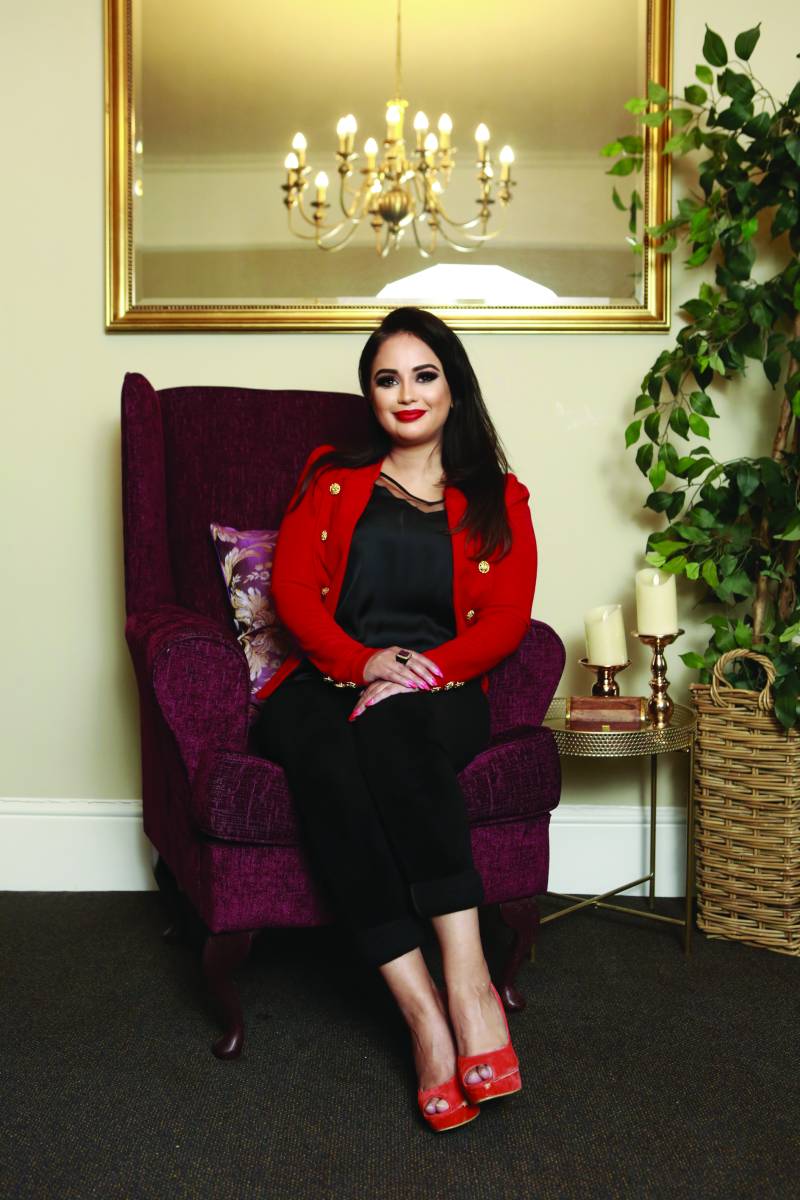
What point in your career was the most difficult for you (either an age, certain role, or specific instance) and how did it affect the way you think about the journalism field now and where it’s going?
Breaking into the BBC, one of the world’s largest and most recognised news organisations was no easy feat but navigating my career and trying to get on screen to inspire the next generation of Pakistani journalists has been tough, however, I do feel it’s quite rewarding. A wise person once said you need to see it to believe and be it – if someone like me sees me reporting, presenting they would have more confidence in believing that one day that could be them.
Breaking into the BBC, one of the world’s largest and most recognised news organisations was no easy feat but navigating my career and trying to get on screen to inspire the next generation of Pakistani journalists has been tough, however, I do I feel it’s quite rewarding
Do you mentor other women? W h a t ’ s y o u r a p p r o a c h t o mentorship?
I live a very busy and quite hectic life so haven’t enrolled myself on a one to one mentor program but I feel the best mentorship is when I am approached both in person and via social media and asked for advice and guidance, this is the best form of mentorship sometimes as you reach more people and support them through their journey with your knowledge and experience.
You’ve been reporting on the flood affected people in Pakistan, especially women. As a journalist, how important is empathy and compassion when interviewing those affected by disasters and tragedy?
I am a journalist because I want to educate, enlighten the audience but more importantly to get some of the most important stories to the biggest audience I can. So I actively push ideas where I feel my story telling can have a positive impact. When working on sensitive stories such as the Pakistan floods and talking to victims it’s tough – you feel immensely grateful to be safe, to have a home, food and a family and the empathy is real as I want to help them in the best way I can. This is to listen to them and tell their story in the most compelling way. I have worked on some of the biggest and most distressing news stories such as the war in Ukraine, Taliban takeover of Afghanistan and more recently the Turkey earthquake and it does take an emotional toll on your mental health, it’s incredibly distressing to talk to people whose lives are at risk and looking at images of young child stuck under rubble – we as journalists see and hear more than the audience we serve.
You often report on issues happening within Pakistan to bring to light stories that are infrequently reported by the local media. What inspires you to choose subjects and stories to interview and report on?
I am passionate about Pakistan even though I was born in the UK – I have a strong connection with the country and understand the language and people, that I can tell the stories with a real understanding and depth of the culture. I think it’s important to tell stories for underser ves audiences and highlight stories that are not always covered because it could help someone somewhere watching or listening.
You’re also the founder of Rising Girl, a charity that helps to educate girls in the UK. Any plans of expanding this to Pakistan? I am just the founder these days in the early days I did most of the work. We did pilot the Rise Together Pakistan program at Quaid-e-Azam University in Islamabad during the pandemic and it was a huge success. I hope I as a philanthropist I can continue to work and empower women both in the UK and Pakistan.
Let’s switch gears; How would you describe your personal style?
I absolutely love Coco Chanel’s style, I have books of her rise and how she carried herself – she was about understated beauty and elegance which is the style I most love. She famously said you should take one thing off when you leave home and this has helped me to not overdo it in the style department. So it’s either heavy earring, no necklace or a beautiful string of pearls and no earrings. I love pearls, you seldom see me without mine I just think they lift any outfit. I shop in places like Zara and really love supporting emerging designers from the subcontinent if I can. I am also a huge fan of blazers. My wardrobe is full of colourful blazers – this is partly because I love designs such as Ralph Lauren. Before I forget, which women doesn’t love a great handbag or five? I honestly think if you purchase wisely it can become a really good investment piece and increase in value of time. I also love the clean lines of Jenny Packham dresses and the dazzle of Zuhair Murad’s outfit – which I drool over on Instagram.
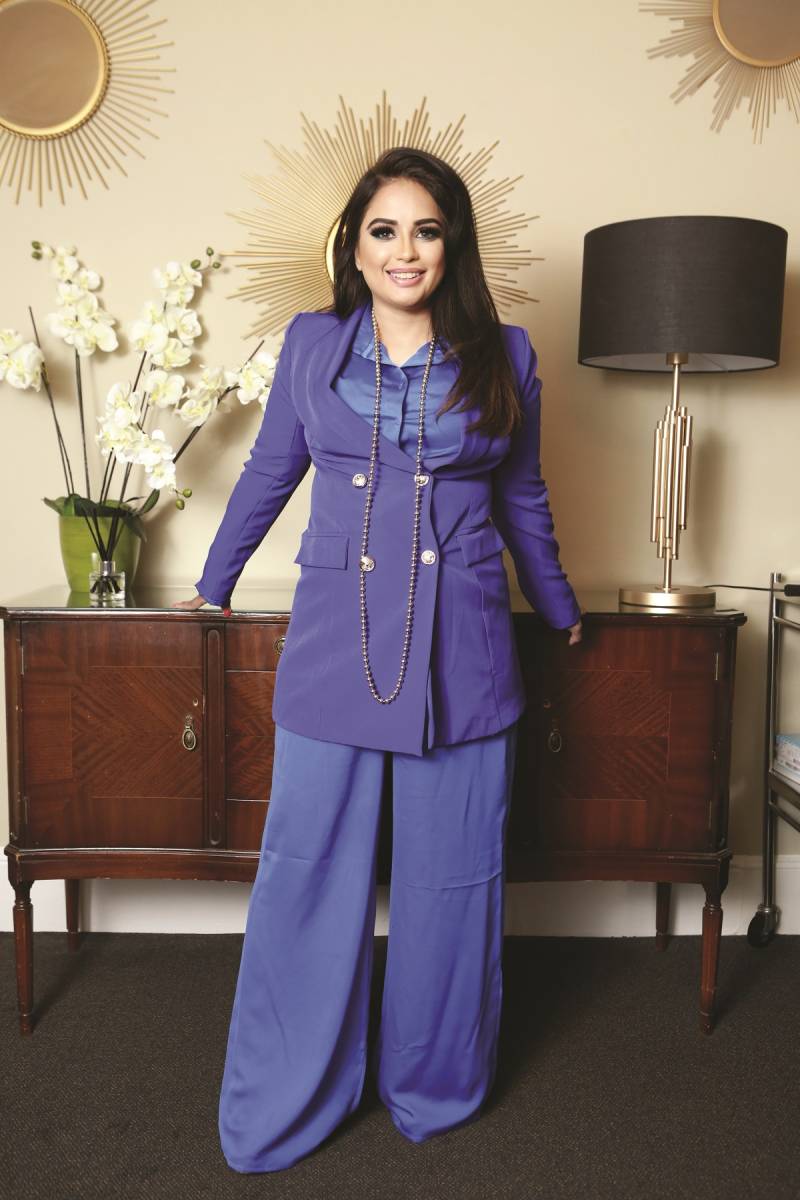
Is your approach to style an established look, or do you find yourself ever evolving?
I like to invest in sustainable pieces that are timeless so they can be worn again. I don’t tend to jump on the latest bandwagon of a hot trend because as soon as you’ve bought it and worn it, its yesterday’s news. However, I do like to add a little something to my outfits so it blends well with the seasonal trends.
Who is one person from history whose style you can call upon for inspiration (real or fictional)?
Obviously Coco Chanel, but I also loved Benazir Bhutto's iconic power shalwar kameez which she adapted from the power suit of the west – no one can forget the infamous green silk kameez and white dupatta that she wore when she was sworn in. From the present I really love the style of Moza bint Nasser, the former Emir of Qatar. She has taken high end catwalk looks and adapted them to keep her modesty but still look phenomenal.
As a high profile woman in London who has a strong connection with Pakistan, what fashion and lifestyle elements do you love and miss?
I used to before the pandemic visit Pakistan twice a year – I just love the food, the people and all the different cultures as well as the artists and of course the style. Pakistan is full of incredible talented people and the world needs to know about them. I used to buy a lot of top Pakistani fashion brands. I like the simple elegance of their outfits. I also have a great appreciation of arts and love the work of many artists such as Muhammad Suleman, Aqsa Ahmad Khan and Sharmene Yousuf. I have to admit I am also a little obsessed with truck art so miss seeing it on the back of trucks in big Pakistani cities.
What are some of your favourite spots in your city?
In general I really enjoy sports watching and if I can take part. I love going to Wimbledon or watching Pakistan play at Lords or score at the polo. I also love the food scene in London I literally have a huge list of restaurants I am currently eating my way through and visiting art galleries, exhibitions and events. The Grosvenor Gallery in Mayfair is great because it exhibits artists from Pakistan and India. I love going to the Opera and ballet so I am a regular visitor to the Royal Opera House and go to The Chelsea Flower show every year as well as The Proms and Frieze.
What’s your favorite part of living there? When they say London never sleeps it really doesn’t – there is so much to do and see you will never get bored. I never get bored but often am quite exhausted running in heels to make my next engagement. There is always a new pop-up an exhibition, event or a great charitable cause to support. I love London it’s like a country in its self rather than just being a city within a country.
FAISAL ALI
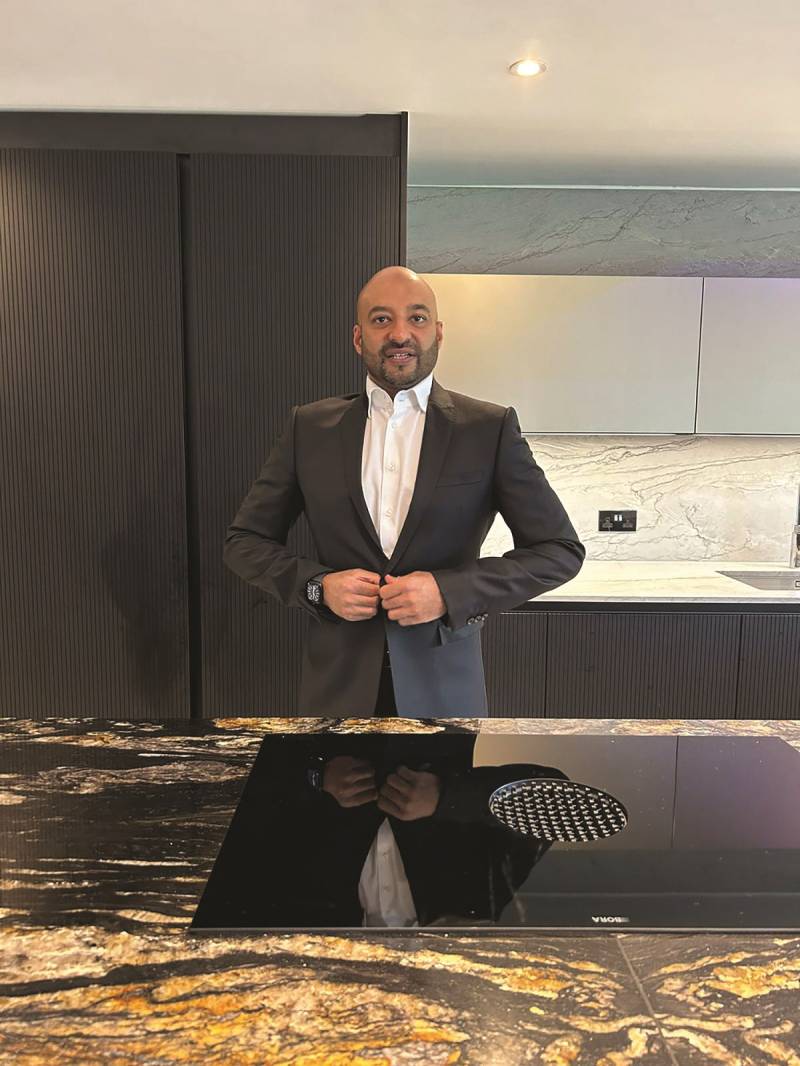
Tell us a little about yourself; your education upbringing, where were you born and raised in London?
I was brought up in West London in a town called Southall, which was synonymous with being a highly ethnically populated suburb. I am the only son having three other siblings but we lived in a large household with my cousins, who till this day I consider to be equal to my siblings.
I went to high school in Ealing, whilst my college years were spent in South Kensington, enabling me to gain access to one of the best private colleges in London. I studied in London at UCL gaining a degree in Economics. I was slightly ahead of my years and managed to finish my undergraduate degree by the age of 19. I went to work in the family business for five years after my degree. I decided to pursue my studies with a law conversion course at the University of Law in London and went on to be called to the Bar at Lincoln’s Inn.
Your business in hospitality has been established since 1968. What according to you is a key to success and survival for such a long time?
The family business was a company called Gifto Group, which was founded by my parents, uncle and aunty in the late 1960’s. We are celebrating 55 years as one of the pioneer business Pakistani families in the UK. It was one of the first grocery shops which specialised in serving the ethnical diaspora in the UK with south Asian cooking ingredients. Our customers came from all over the UK, as it was very difficult to obtain these ingredients in the 60’s, 70’s and 80’s. We finally closed the doors to the grocery business in 2002 but by now, Gifto Group had diversified into restaurants, property investment and property development. The restaurants are located in Southall and Dubai and trade under name of Gifto’s Lahore Karahi and Gifto’s of London. We specialise in authentic Lahori cuisine bringing a taste of Pakistan to London and Dubai.
We pride ourselves in using the freshest ingredients to serve the best possible dishes to our clients. Hard work, honesty and dedication to our business are the key elements in our success and longevity. Clients will always come back when you provide a quality product. Our attention to detail and making sure that our clients enjoy the complete Gifto experience.
‘We were one of the first desi restaurants in 1990’s to introduce the concept of a theatre kitchen at a Pakistani restaurant, where most of the dishes were cooked to order in front of the client’
With so many desi restaurants in London and Dubai now, how difficult is it to keep up with the competition? Is it important to stay true to old ways or you think one should change, according to the times?
One of the reasons we have managed maintain trading for the last five centuries is because we do not compromise on the quality of our products. The key elements which have been passed down to us by our parents is that the client will always appreciate quality and to remain consistent. Our dishes in London and Dubai have been consistent in terms of taste and the service we provide. This is not to say that we have not moved with the times with other aspects of the hospitality industry. Our cooking methods have become more efficient, we are always looking at innovative methods and experimenting with new ways to improve. We were one of the first desi restaurants in 1990’s to introduce the concept of a theatre kitchen at a Pakistani restaurant, where most of the dishes were cooked to order in front of the client. We tried to show transparency and that we do not use microwaves to heat up food rather than everything is cooked from scratch. We have also been upgrading the interior décor of the restaurants every 8-10 years to keep up with the times.
We frequented Dubai on holiday but after having every other cuisine, we always missed Pakistani food and to find a clean, high end Pakistani restaurant in Dubai was difficult. I wanted to open a Pakistani restaurant where you could take your family and expats from London can dine in a clean, transparent environment. The other higher end south Asian cuisines lacked the flavours of Pakistani food.
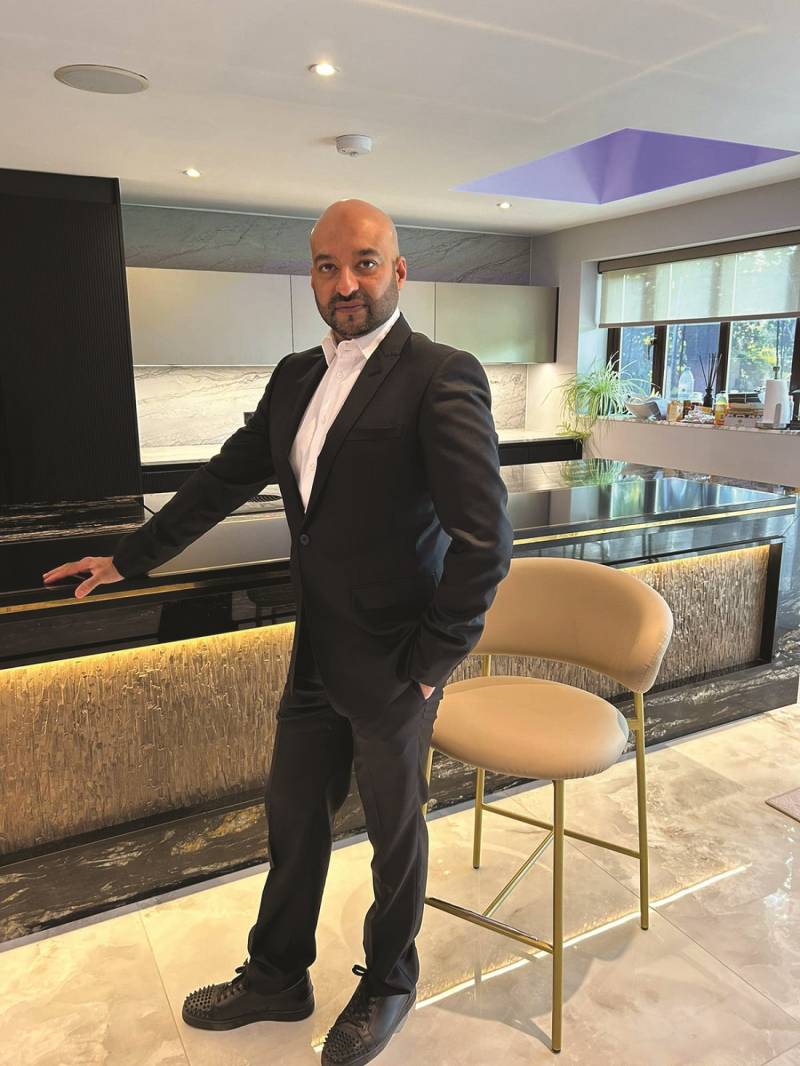
Where do you get your ingredients from? Is it easy to find typical Pakistani/Indian spices and ingredients there?
We have been in the South Asian grocery industry since the late 1960’s, at that time it was much more difficult to source. My father travelled to Pakistan and India to source ingredients during that time. The spices and lentils were purchased in large bags and my mum and my aunty use to package them into smaller bags for the retail market. The Pakistani/Indian spice market has changed considerably, and all the ingredients are now readily available. We have links with all the major producers and we choose our products on quality.
Is there any recipe being carried on from your ancestors? If yes tell us a little about it.
One of the most important aspects that our clients expect is c o n s i s t e n c y a n d w e h a v e remained with the same recipes since we started the restaurant. We our synonymous with Pakistani specialties such as nihari, paya, haleem and magaz which wouldn’t be readily available in other Pakistani restaurants. We have become renowned for our faluda, this is because we make everything from scratch, the rabadi, the kulfi, the faluda noodles. Our chefs are only allowed to purchase milk and from that, all dairy products are made in-house including yogurt, paneer, rabadi and kulfi.
‘I have a few new ideas which we will be introducing next year, which I have taken from the street food vendors of Lahore and Peshawar’
Did you always imagine yourself in the culinar y/hospitality industry or did you have other dreams?
I went to university at UCL, being one of the best universities in the UK for Economics and my intentions were always to use my degree to improve the family business. This is the reason I entered the family business after my degree. Once we had diversified into other sectors, I felt a Law degree would also be beneficial in the commercial real estate market and hence I went back to university. Commercial real estate now consists of 80% of Gifto Group and we are a strong player in the local investment and development sector
Besides being a successful businessman what do you do in your time off?
I have realised that being a successful businessman and building a business is important but there are many more aspects to life which are equally or more important. My father, my mentor passed away eight years ago and the importance of family and spending time with family now holds priority in my life. I have an 18-year-old son, who is off to NYU to study Financial Economics and a 11-year-old daughter, and many of my weekend time is spent with them. I enjoy long distance running, which enables me to have some quiet thinking time preparing me for the day ahead. I am a keen collector of cars and have a collection of Ferrari’s ranging from classics to the modern hybrid. This passion stemmed from my interest in Formula One. Also, as a patriotic Pakistani, I enjoy watching the Pakistan cricket team playing and make a point of going to watch them whenever they are in the UK.
If you were ever to open a new restaurant, what style of food would you pick?
Whenever I visit Pakistan, one of my favourite cuisines is IndoPakistani cuisine. Pakistan has amazing Indo-Chinese food which is lacking in London. We have good Chinese food in London but not good IndoChinese restaurants. My next restaurant would be to bring this cuisine to London once I have perfected the correct taste and able to provide a sustainable consistent taste.
Any plans on expanding your ventures elsewhere besides London and Dubai?
We had a plan to expand throughout the Middle East but unfortunately the onset of Covid was a crippling force for the hospitality industry throughout the world. We have intentions to resume our plans to roll out Gifto’s throughout the Middle E a s t a n d m a y b e o n e d a y potentially into Pakistan.
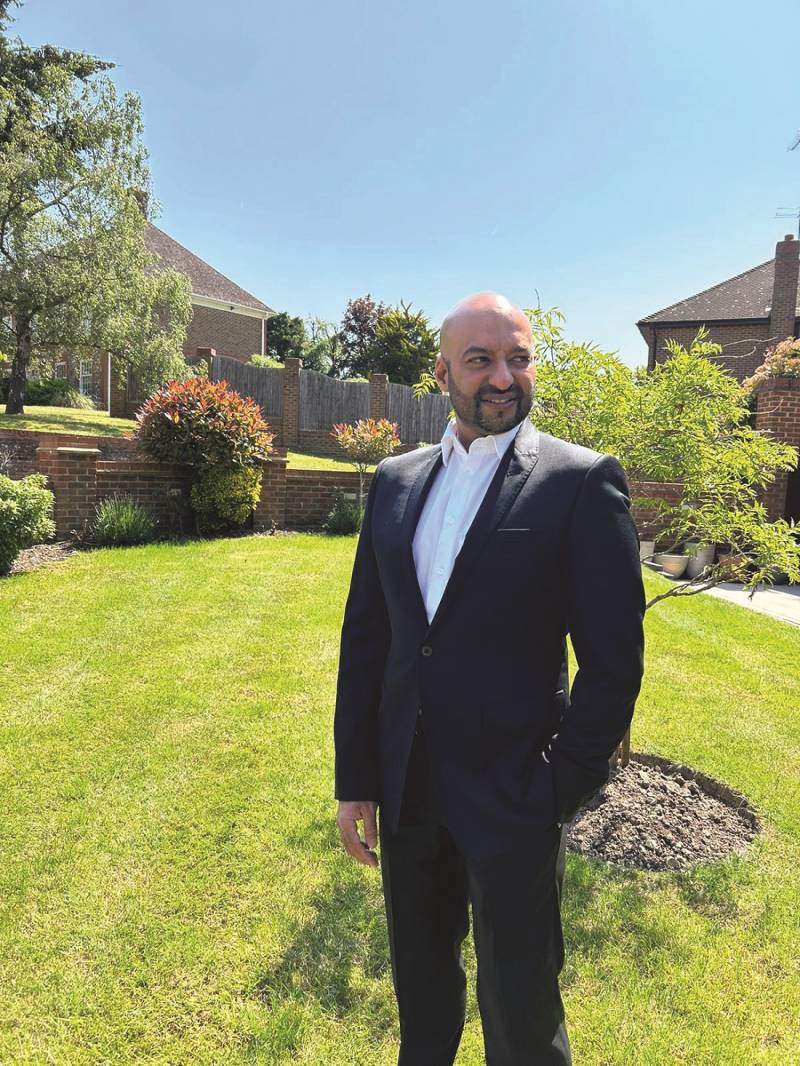
When was the last time you were in Pakistan and were you inspired by any dish?
I was in Pakistan last month and landed on 10th May to a country in the middle of a political crisis. The bustling roads of Islamabad and Rawalpindi were deserted. I have a few new ideas which we will be introducing next year, which I have taken from the street food vendors of Lahore and Peshawar.
Would you ever start a venture in Pakistan and what conditions would need to be met to do so?
One day InshAllah, bringing Gifto’s to Pakistan and taste of British-Pakistani cuisine would be an honour. Any venture in Pakistan would only work if there were a demand for our cuisine and what we can offer is UK health and hygiene standards with fresh desi produce. Again, accessibility and an environment for us to flourish would be another incentive.
We see many Pakistani expats with a strong connection with Pakistan – you are also a director of Pakistan Human Development Fund Charity, tell us a little about that…
Every expat Pakistani has an affiliation to Pakistan in one way or another and we want our home country to prosper and develop. Pakistan expats are one of its greatest assets and I believe we are the key to helping Pakistan. We donated $100,000 to the Pakistan Human development Fund so that we can give something back. PHDF is a private public partnership concentrating in investing in human development with the NCHD implementing projects in some of the rural parts of Pakistan
INTERVIEWS: SUNDUS UNSAR RAJA
CREATIVE DIRECTOR: KANIZ ALI
PHOTOGRAPHY: DANNY SINGH
HAIR & MAKE UP: KANIZ ALI
LOCATION: HARLEY STREET, LONDON
